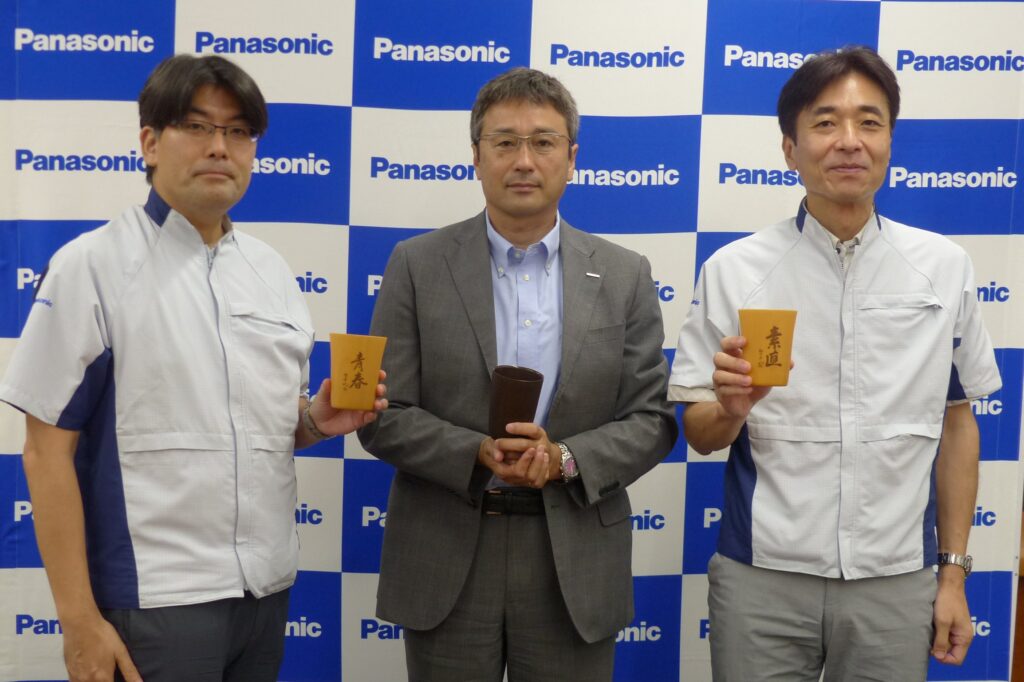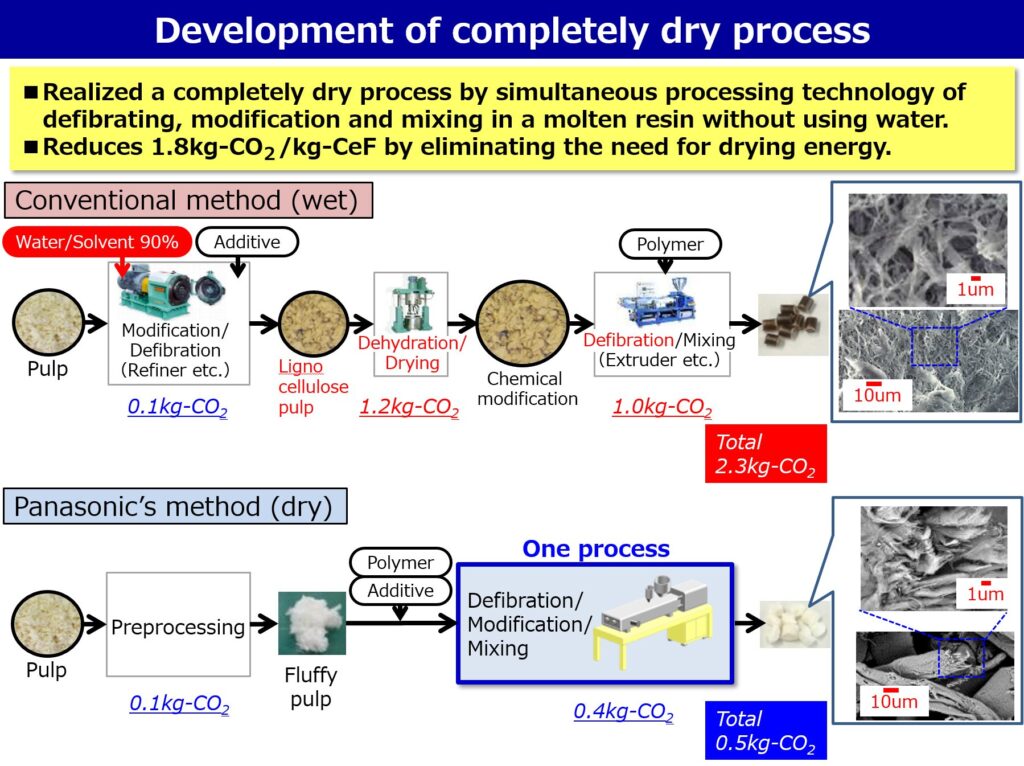
In order to reduce the amount of plastic used in its manufacturing plants and to contribute to the realization of a circular society, Panasonic has been undertaking research and development of eco-conscious materials that can potentially replace plastics. In 2019, the company introduced a composite processing technology that combines a high concentration of plant-derived cellulose fiber resin. As a molding material that will further promote recycling-oriented manufacturing, it is already being applied to chassis of consumer electronics, reusable cups, etc.
Panasonic began its research and development of eco-conscious materials in 2015. What Panasonic focused its attention on was plant-derived cellulose fiber: this light, but strong eco-conscious biomass molding material is made by extracting fiber from cellulose, a key composite of plants, fibrillating, and mixing it with resin as a reinforcing agent. Cellulose fiber is made from pulp, which comes from trees, a recyclable natural resource. Pulp can also be created from thinned wood from forests and plant resources including industrial waste. It has drawn attention as a sustainable resource that can be reproduced by strategically planting trees.
 Generally, cellulose fiber is extracted from pulp by fibrillating the pulp in water. The cellulose fiber must then be dried before it can be mixed with resin, and the energy and cost required to do so had been a challenge in the past. Panasonic developed a proprietary process that is completely dry by fibrillating pulp in molten resin rather than water. By getting rid of the drying process, Panasonic made it possible to manufacture cellulose fiber more efficiently.
Generally, cellulose fiber is extracted from pulp by fibrillating the pulp in water. The cellulose fiber must then be dried before it can be mixed with resin, and the energy and cost required to do so had been a challenge in the past. Panasonic developed a proprietary process that is completely dry by fibrillating pulp in molten resin rather than water. By getting rid of the drying process, Panasonic made it possible to manufacture cellulose fiber more efficiently.
On August 2019, with Asahi Breweries, Panasonic launched reusable cups made from high concentration cellulose fiber molding material. These reusable cups are being tested in the field so that they may be used for outdoor events or for takeout.



